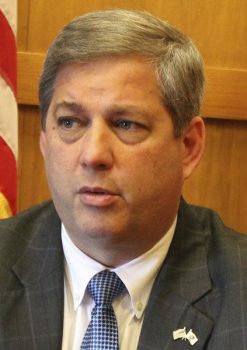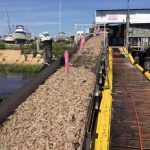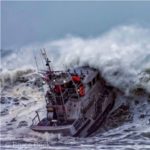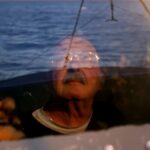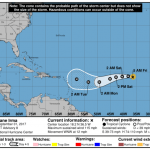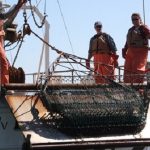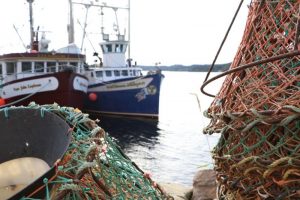Daily Archives: October 24, 2019
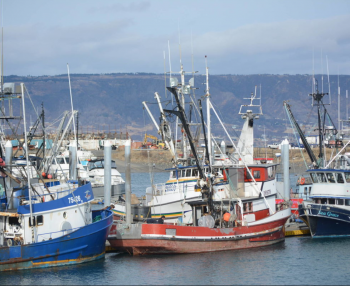
Congress considering safety, climate change for fisheries
Congress is getting involved in fisheries in a couple key areas: safety and climate change. The FISH SAFE Act, and, Climate Ready Fisheries Act of 2019. Republican Rep. Don Young is leading a bipartisan effort along with Rep. Jared Golden (D, Maine) to improve safety, introducing the Funding Instruction for Safety Health, and Security Avoids Fishing Emergencies Act.,,, The most recent climate change legislation, also bipartisan, was introduced by Rep. Joe Cunningham, (D- S.C), and is co-sponsored by Reps Brian Mast (R-Fla.), Francis Rooney (R-Fla.) and Jared Huffman (D-Calif.), and is meant to help “low country” fishermen, but the impact, should it pass, would presumably help fishermen nation-wide. >click to read< 21:51
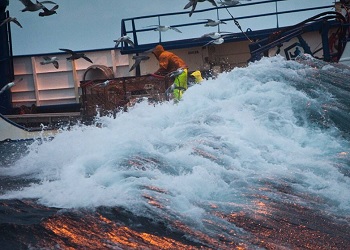
A Guide to the Surplus of Drama That Has Sprung From Deadliest Catch
Deadliest Catch has won 16 Emmys, including two for Best Unstructured Reality Program (a rare assignation if there ever was one), spawned books and video games, and remains a must-watch for millions after 14 years on Discovery Channel. But perhaps because of the very nature of the job at hand, the drama over 15 seasons hasn’t been confined to the adventures unfolding at sea. Photo’s, >click to read< 18:04
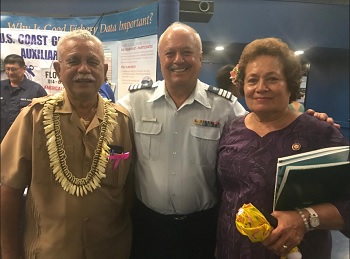
Lt. Governor, Congresswoman, Territory Commerce Department Stress Importance of Fisheries to the U.S. Territory of American Samoa
“Fisheries sustains our livelihoods in all aspects of our lives” was the core message that reverberated through the remarks of Lt. Gov. Lemanu Peleti Mauga, who opened the 180th meeting of the Western Pacific Regional Fishery Management Council yesterday in Pago Pago, American Samoa. Congresswoman Aumua Amata Radewagen’s opening remarks echoed those of the Lt. Governor. “Fishing has sustained us for our entire history,” she said. >click to read< 16:28
Congresswoman: US negotiators went backwards – Congresswoman Aumua Amata says US negotiators went backwards when they reduced 700 fishing days in the current South Pacific Tuna Treaty. Audio, >click to read< 16:30

Dear editor: Government going overboard with Marine Protected Areas
The B.C. economy is set to lose hundreds of millions of dollars and few seem to be aware or care about this issue. The issue is the establishment of Marine Protected Areas (MPAs). Few would argue that MPAs can be beneficial, even commercial fishermen.,,, These B.C. fishermen work on the principle of sustainable yield,,,An estimate of the loss to the northern shelf alone ( north of Port Hardy) is $100 million per year! by George Dennis,
Comox >click to read< 15:20
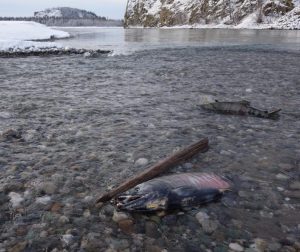
Southeast Alaska and Washington Tribes, First Nations in British Columbia declare salmon emergency
Indigenous governments in Southeast Alaska and Washington, with First Nations in British Columbia, have declared a salmon emergency and are calling for representation in all government decisions impacting their territories. “We know there are things going on in the ocean,” said Rob Sanderson Jr. chairman of the Southeast Alaska Indigenous Transboundary Commission. “Our fish are just not there. The size of the salmon are a lot smaller,” >click to read< 12:40
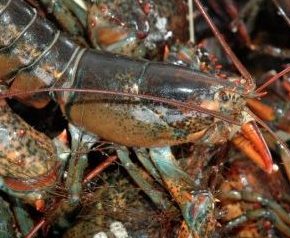
DMR’s answer to whale rules focus offshore
Last week, DMR Commissioner Patrick Keliher announced that after “rigorous scientific analysis,” the department had come up with a new draft plan to address “both the risk to right whales and concerns of fishermen” that is “in keeping with the real risk the Maine fishery presents.” Last March, the National Marine Fisheries Service announced that the risk of injuries to right whales in the Gulf of Maine had to be reduced by at least 60 percent. Last March, the National Marine Fisheries Service announced that the risk of injuries to right whales in the Gulf of Maine had to be reduced by at least 60 percent.,,, The rule also would extend electronic vessel monitoring now required on boats that hold permits to fish for species other than lobster in federal waters to all federally permitted lobster boats. >click to read< 11:27

Two Months Later, Vineyard Wind’s Delay Still Clouds US Offshore Picture
Two months after the U.S. government abruptly delayed Vineyard Wind’s 800-megawatt offshore wind project, the industry is still looking for answers. It’s not exactly clear when Vineyard will get its final go-ahead, let alone what effect the government’s unexpected “cumulative impacts analysis” will have on the pathbreaking $2.8 billion project or the broader American offshore wind market.,,, “This delay…I took it very personally,” said Jason Folsom, director of U.S. sales at MHI Vestas and a market veteran, speaking at the Boston conference this week. >click to read< 09:57

DMR issues draft decision approving controversial Mere Point Oyster Co. lease
Despite opposition from a group of neighbors and commercial fishermen who object that the lease would interfere with fishing and recreation in the bay, the Department of Marine Resources has issued a draft decision approving a 35-acre oyster lease proposed by Mere Point Oyster Company. The company, owned by Doug Niven, a longtime resident of Mere Point, and former Brunswick Marine Resources Officer Dan Devereaux, applied in February 2018 to expand their oyster-growing license to a 40-acre oyster lease in Maquoit Bay. >click to read< 08:54






